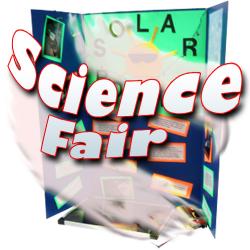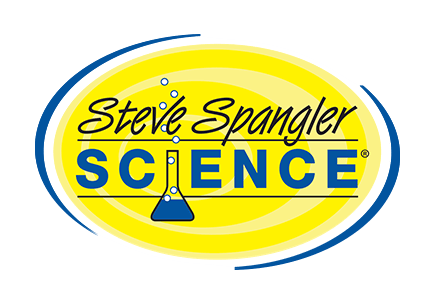Putting Together an Amazing Science Fair Project
 Have you signed up for your school’s science fair but haven’t picked a science fair project? Or are you thinking about joining your science fair but don’t know where to start?
Have you signed up for your school’s science fair but haven’t picked a science fair project? Or are you thinking about joining your science fair but don’t know where to start?
Participating in the science fair is an amazing opportunity to learn about the scientific method, ask questions, explore, make new discoveries and gain an understanding of how science works.
The start to a great science fair project is asking questions. Performing an experiment is not a science fair project.
To find a science fair project, browse through the experiment library and start asking questions like “why does it work that way,” “what if I did it this way?”
For example, dropping Mentos into Diet Coke is not a science fair project. It’s a science demonstration. Asking questions like “what temperature of Diet Coke will make the tallest geyser,” or “what soda makes the shortest geyser?” are good science fair projects.
Asking questions will help you decide what you want to learn from the project. And is step one in the scientific method.
After you settle on a question to answer, start step two – research. Gather information about your question. Ask your science teacher and librarian for tips on how to find detailed information for your project.
The third step is hypothesis. Based on the research you have gathered, make an educated guess about what you think the outcome of your experiment will be.
In the fourth step is procedure. This is where you perform your experiment.
Take detailed notes about the processes and results of your experiment. The fifth step is collecting your data. Document every part of your experiment. Take notes, draw pictures, use your camera and anything else that will help keep track of every step of your procedure.
The sixth step is observations. Write a description of what you discovered from your experiment.
The final step is your conclusion. Was your hypothesis correct or incorrect? Summarize the results of your experiment and compare the results to your original guess, and remember… it’s okay if your hypothesis was wrong. That is all part of the scientific process.
For more information, science fair project ideas and help on putting together an amazing science fair experiment check out the Science Fair section on SteveSpanglerScience.com.
If you are excited about your child’s science fair project, they will be excited too! Use this opportunity to teach your child the importance of building life long learning skills. Conducting science experiments and teaching process skills take time, and the unfortunate truth is that teachers may not have the necessary time in class to allow the children to explore on their own. That’s why it’s so important for you as the parent to take the time to create a meaningful learning experience and to rekindle your child’s natural sense of wonder.




A lot of top science fair participants explore new areas, and they do just fine in science competitions. You might find you enjoy an area you never would have picked otherwise!
me and my freind are doing dite coke and mentos for are science fair
i agree that this is agood one.